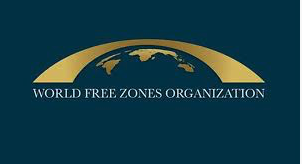Tempo de leitura: 2 minutos
Foreword
At a time when Sierra Leone is recovering from the impact of COVID-19 amidst the Ukraine-Russia war-induced food and energy crisis, special economic zones (SEZs) present a unique opportunity for in- vestment in order to foster inclusive and sustainable growth and development. Sierra Leone faces many constraints to economic development but the country as a whole and some localities in particular, offer huge potential and many comparative advantages that can be leveraged to increase competitiveness, achieve productive transformation, and promote a balanced territorialization of development through SEZs.
This report comprehensively assesses Sierra Leone’s experiences and perspectives with SEZs, drawing lessons from in-depth consultations with different stakeholders and providing compelling evidence on the factors that determine success in SEZ programmes and in line with the Sierra Leone SEZs policy, which covers free trade zones, export processing zones, comprehensive special economic zones and enterprise-specific single factory zones.
SEZs are known to actively facilitate national, regional and global economic development through trade. In this regard, the African Continental Free Trade Area presents an opportunity to extend special eco- nomic zone activities and promote intra-African trade by removing non-tariff barriers, promoting legal framework harmonization, and facilitating compliance with international standards.
As there is a consensus that Sierra Leone has resources that need to be developed, SEZs can act as tools to overcome some of the existing constraints to attract investment and grow the country’s export capacities. It also represents an opportunity for the transfer of knowledge (technology) from high-tech foreign investment to domestic firms, including small businesses, within the SEZs which can benefit from spillover effects to scale up and increase their productivity and competitiveness.
This report will also provide insights on the policies and interventions that can help firms operating in local markets to fully reap the benefits of future special economic zones in Sierra Leone.
SEZs are expected to contribute to the broader Integrated National Financing Framework initiative that aims to use innovative financial mechanisms to unlock private sector investment sufficiently, increase domestic revenue mobilization in the context of implementing the Sustainable Development Goals (SDGs), and enhance economic growth and development in Sierra Leone.
At this time when the risk of debt distress is high, SEZs are crucial instruments for attracting investment in the country in order to mobilize resources, achieve productive transformation, and finance the SDGs.
We are aware that policymakers face not only the traditional challenges of making SEZs succeed but also other challenges, including the need for an adequate regulatory framework and coordination to ensure optimal returns.
This report serves as a guide in this regard as it provides an overview of the SEZ landscape and offers advice on how to respond to fundamental challenges for zones posed by the sustainable development requirements and changing patterns of international production and consumption.
Dr Edward Hinga Sandy, Dr Pa Lamin Beyai,
Ministry of Trade and Industry UNDP Resident Representative
Foto: Wikipedia/David Hond






Os comentários foram encerrados, mas trackbacks e pingbacks estão abertos.